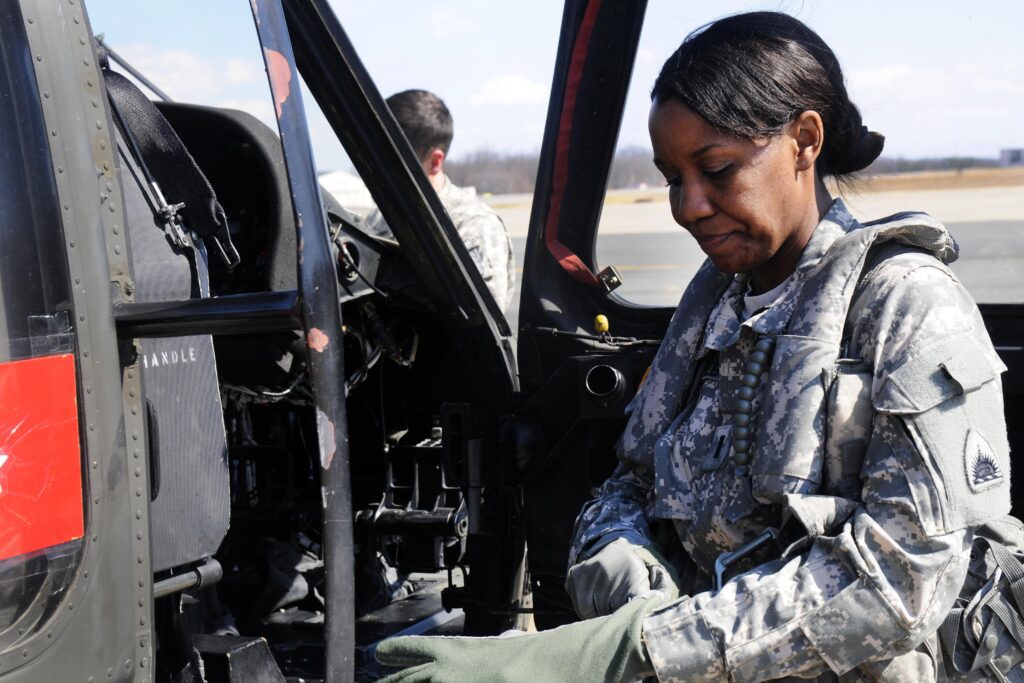Engaging with women veterans is critically important, said speakers at the Biotechnology Innovation Organization’s (BIO) third annual Veterans Day Coffee Chat, which took place a few days before Veterans Day. During the discussion, patient advocates – many of them women U.S. military veterans themselves – discussed how best to engage with this population.
How do you start engaging with women veterans?
“Generally speaking, there’s a number of veterans service organizations that support women, women veterans, and women in active duty,” said U.S. Navy Captain (ret.) Kathy Beasley, Ph.D., who retired in 2009 after serving 30 years as a career Navy Nurse Corps Officer.
She directs patient advocacy groups to organizations such as Service Women’s Action Network (SWAN), which focuses exclusively on women who have served and on veteran women’s issues.
HealthyWomen is an organization focused on educating women, primarily between the ages of 35 and 64 to make informed health decisions and effectively advocate for themselves. HealthyWomen launched Ready, Healthy & Able, a comprehensive women’s health education program for active-duty women in the military ages 18+. (Captain Beasley is one of the experts affiliated with the Ready, Healthy & Able program.)
Rebecca Sager, HealthyWomen’s SVP of Development, discussed how Ready, Healthy & Able is going directly to military bases for live and on-demand trainings, and engaging directly with health care providers as well, at bases including Fort Belvoir (Virginia), MacDill Air Force Base (Florida), Joint Base San Antonio-Fort Sam Houston (Texas), and Marine Corps Base Camp Pendleton (California).
This work is being done in a manner that is culturally sensitive and reflective of these servicewomen’s needs and careers, explained Sager.
Addressing veterans’ immediate and long-term needs
Eileen Huck, Senior Deputy Director of Government Relations at the National Military Family Association (NMFA), advocates for servicemembers and their families from all branches and all ranks, including retirees and surviving family members. The organization was started in 1969 by military spouses concerned about a friend who lost her veteran husband and was left essentially destitute due to the lack of benefits. Their efforts resulted in Congress creating the Survivor Benefit Plan, which became law in 1972.
According to Huck, NMFA’s government relations and advocacy efforts are dedicated to the long-term needs of military families, while the organization’s programs are devoted to current needs.
One of these programs is Operation Purple Camp, started in the early years of the Afghanistan and Iraq wars, which provides a free week of summer camp to children who have experienced the deployment of a parent. Similarly, Operation Purple Family Retreats allows families to reconnect and make new memories when the parent returns home.
In addition, NMFA launched scholarships exclusively for military spouses to help pay for all types of degrees, from GEDs to PhDs, as well as professional licenses and certifications. The organization’s programming “continues to evolve for families’ needs,” said Huck, with access to mental and behavioral healthcare a growing area of focus.
Communication is key
Naomi Mathis, Associate National Legislative Director for DAV (Disabled American Veterans), served in the Air Force as a Non-Commissioned Officer in Iraq, and medically retired due to a combat-related disability. DAV focuses on service-disabled veterans – and to work for the organization, you must be a service-disabled veteran. The organization works to ensure veterans and their families can access the full range of benefits they deserve, in addition to assisting veterans in finding meaningful employment and advocating for the community on Capitol Hill.
Mathis emphasized the importance of “communication to understand what’s happening.” All interested parties, whether in government, the non-profit sector, or the private sector, must all work together to effectively address veterans’ needs.
We also heard from Julie Howell, Associate Legislative Director of Paralyzed Veterans of America (PVA), served in the U.S. Army from 2000 to 2005, joining at the age of 17.
“My grandpa was a Pearl Harbor survivor; my grandmother was a nurse in New Guinea in World War II. We are the American Dream. They met at a USO Dance in Mason City, Iowa, in 1944. Joining the military was always going to be my path,” Howell shared. Howell’s unit was the first active-duty Army unit to be deployed in support of Operation Enduring Freedom in Iraq.
Upon leaving the military, Howell went on to work as a chef and returned to school using the G.I. Bill, ultimately ending up working with student veterans. Howell then found a passion for advocacy and policy work on behalf of veterans.
PVA is the only congressionally-chartered Veterans Service Organization (VSO) focused on veterans who have suffered catastrophic injuries – namely, a spinal cord injury or degeneration. “You do not have to be a wheelchair user to be a member of PVA,” Howell emphasized.
With 33 chapters nationwide, PVA works to advance veterans’ access not just to benefits and employment but also to assistance to enhance mobility and access to caregiver resources. A major PVA program is the Women Veterans Empowerment Retreat, which focuses on “how to empower yourself, how to take up leadership roles in your community, what does it mean to advocate,” to empower women veterans.
“Communication is key. Networking, as cheesy as it is to stress that – that’s critical and vital to the survival of Military Service Organizations (MSO) and VSOs, making sure that those partnerships exist and that everyone is talking to one another,” Howell added.
The discussion was part of BIO’s ongoing Patient Advocacy Coffee Chat series, giving a voice to patient and community advocates with a variety of backgrounds and diverse lived experiences, both personally and professionally. This year’s Veterans Day discussion was moderated by Ashley John, BIO’s Director of Patient Advocacy and Alliances.
To everyone who has served in the U.S. military, BIO thanks you for your sacrifice and dedication.
More Reading:




